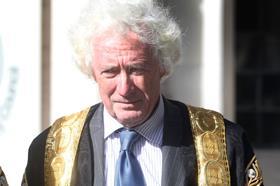Claimant lawyers will have to redirect claims relating to unknown drivers after the Supreme Court ruled that individual insurers should not be liable.
Defendant solicitors and insurers toasted the decision last week in Cameron v Liverpool Victoria Insurance Co Ltd, where justices ruled proceedings could not be brought against unnamed parties. The Supreme Court allowed the insurer’s appeal and set aside an order from the Court of Appeal from May 2017.
The outcome means RTA victims who cannot identify the driver at fault must make their claim against the Motor Insurers Bureau (MIB) – a process likely to take longer but reduce insurer costs.
‘The stack of claims stayed pending the outcome of the appeal will now have to be discontinued unless further evidence has come to light identifying the driver,’ said Will Balfry of the Forum of Insurance Lawyers. ‘The judgment will allay concerns around fraud. The previous decision from the Court of Appeal left insurers open to an increase in fraudulent claims against unknown drivers in staged accidents.’
On the claimant side, lawyers acknowledge that the decision could prevent fraud and will at least give clarity.
Rachel Di Clemente, director of legal services for Yorkshire firm Minster Law, said: ‘The innocent party will have to seek redress via the MIB “untraced scheme”, which lengthens the process, creates less control of their claim, and risks their damages being impacted by the MIB’s cap on damages, or less advantageous funding terms from solicitors, so reducing their eventual damages.’

In the lead judgment, Lord Sumption rejected the argument that an at-fault driver could be sued under a pseudonym or description. He said parliament had expressly based legislation on the principle that as a general rule there is no direct liability on the insurer, except for its liability to meet a judgment against the motorist once it has been obtained.
He added: ‘The availability of compensation from the [MIB] makes it unnecessary to suppose that some way must be found of making the insurer liable for the underlying wrong when his liability is limited by statute.’



























6 Readers' comments